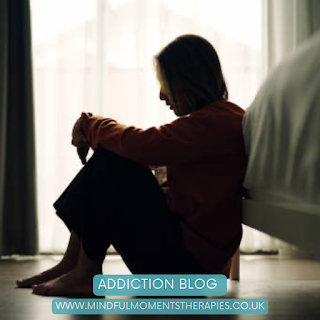Aromatherapy as a practice and therapy
Aromatherapy is an ancient practice that uses essential oils to promote physical, mental, and emotional well-being. In this blog post, we will explore the history of aromatherapy, how it works, what's involved in a session, how it helps, and what to expect.
Aromatherapy has been used for thousands of years. The ancient Egyptians, Greeks, and Romans all used aromatic oils for medicinal and spiritual purposes. The practice of aromatherapy was further developed in the Middle Ages, where it was used to treat a range of ailments.
During the 20th century, scientists began to study the properties of essential oils and their therapeutic effects on the body. This research led to the modern practice of aromatherapy, which is now widely used around the world.
Aromatherapy works by using the natural properties of essential oils to promote physical, mental, and emotional well-being. Essential oils are extracted from plants and contain the aromatic compounds that give plants their distinctive scents. These compounds have a range of therapeutic properties, including anti-inflammatory, antiseptic, and calming effects.
During an aromatherapy session, essential oils are usually diffused in the air or mixed with a carrier oil and applied topically to the skin. The scent of the oils can be inhaled, which can promote relaxation, reduce stress, and alleviate physical symptoms.
An aromatherapy session typically begins with an assessment of the clients current physical, mental, and emotional state. This assessment will help the therapist tailor the use of essential oils to best meet the individual's needs.
During the session, the aromatherapist may diffuse essential oils in the air or mix them with a carrier oil and apply them topically to the skin. The client may also be guided to inhale the scent of the oils or use them in a bath, as a cream or a pillow spray, I like the use of diffusers and also rollerball bottles to apply to pulse points as they can be carried with you and applied as required.
The therapist may also provide guidance on the safe use of essential oils at home, including how to properly dilute the oils when applying them topically or using them in a diffuser. There is a misconception about the power of essential oils and their potency is often underrated and undervalued blending them appropriately is a skill and technique from training and working with the oils themselves.
Aromatherapy can have a range of therapeutic benefits, including:
Stress Relief: Aromatherapy can help promote relaxation and reduce stress.
Improved Mood: Aromatherapy can help improve mood and promote feelings of well-being.
Physical Benefits: Certain essential oils have anti-inflammatory, antiseptic, and analgesic properties, which can help alleviate physical symptoms such as pain and inflammation.
Improved Sleep: Certain essential oils can promote relaxation and improve sleep quality.
Enhanced Energy: Certain essential oils can help enhance energy and promote feelings of vitality.
An aromatherapy session can be a soothing and relaxing experience. The therapist will assess the individual's current physical, mental, and emotional state and tailor the use of essential oils to their needs.
It's important to note that aromatherapy is a complementary therapy and should not be used as a substitute for medical treatment. It can be used alongside other therapeutic approaches to promote overall health and well-being.
Aromatherapy s as individual in its blends and applications as the client themselves and can bring about deep healing and physical relaxation. I don’t continue oils and massage, instead I work with you to connect to the oils, create the blends for your purpose and needs and work collaboratory with you to provide the therapeutic blend to support your physical, emotional and mental health and wellbeing.
If you feel you would like support, and you feel therapy may be the answer. I offer 15 minute free insight calls, for you to have the chance to discover how therapy might support you. Visit my website for more information.
www.mindfulmomentstherapies.co.uk
Or email
enquiries@ mindfulmomentstherapies.co.uk
You can also follow my socials
@mindfulmomentstherapies
On
Or listen to my podcast
https://www.buzzsprout.com/2182222/episodes
Call today for a new tomorrow.




Comments
Post a Comment